![]()
» Iran’s fundamentalists and reformists nowadays
This editorial discusses the current activities of Iran’s two political factions, mainly focusing on fundamentalists’’ disagreements within themselves. The editorialist holds that fundamentalists’ in Iran suffer from discord. While they are making plans for upcoming elections, seven different points of view exist within this political faction– each of which considering itself superior to others. The recent measures of Mahmoud Ahmadinejad have brought disgrace to most fundamentalists’, leading to their loss of reliability in society. As for their attacks on reformists, fundamentalists’ merely use reformists’ gaffes in the city council and municipality. The editorialist then points to latest crises in the country, including the current condition of earthquake-stricken people, inflation, skyrocketing prices, Tehran mayor’s resignation, leaving of Iran’s top environment official and an increase of US dollar rate, saying that the fundamentalist media were supposed to work on those issues. However, the escape of former Tehran prosecutor Saeed Mortazavi shifted the focus. The editorial ends by comparing fundamentalists’’ and reformists’ activities at present: The fundamentalists’’ agenda is still attacking reformists, with the new phase of their attack launching when Tehran’s new mayor will be elected. In defense, reformists have only several newspapers that simply care about their financial interests rather than factional activities.
An Editorial in “Sedaye Eslahat” on April 18, 2018
» People’s smiles or top authorities’ smiles?
This editorial addresses the controversy of the resignation of Tehran’s mayor as well as its aftermath. The editorialist starts by referring to the letter of Iran’s attorney general regarding the necessity of the second resignation of Tehran’s mayor and its acceptance by the city council, calling it unprecedented. Moreover, rumor has it that Iran’s supreme leader has avoided meeting with members of Tehran’s city council because he is dissatisfied with them and the mechanism of this council. However, the editorialist continues, the best option is to meet people’s expectations in this regard as it was people who elected the councilors due to their viewpoints and slogans. By choosing the current members of Tehran’s city council, people actually conveyed this message that they were not satisfied with previous councilors’ performance, including their opaque agreements with military institutions. Therefore, the first major characteristic of Tehran’s mayor should be the independence of opinion. Otherwise, it is a betrayal of people’s votes if a mayor who makes decisions for 25% of Iran’s population is under the influence of political factions, preferring their interests to those of people. In conclusion, the editorialist says if the reformist councilors who won people’s trust with dazzling promises tend to satisfy top authorities rather than their own voters, they will choose a mayor who takes no heed of people’s interests.
An Editorial in “Jahan-e Sanat” on April 17, 2018
» Coalition against Syria
The editorial of Shargh daily deliberates on the formation of a coalition against Syria and how this can affect Iran’s relationship with other countries, as well as the fate of the nuclear deal (JCPOA). Recently, American, British and French missiles hit some targets in Syria in retaliation against Syrian government’s chemical attack against its civilians.
The editorial asserts: as for relationship with Europe, it was hoped that Europeans would strongly back JCPOA and benefitting from it, but this relationship has reached a dead end due to some issues in foreign policy. Germany too has announced that serious economic relationship with Iran depends on lifting Iran’s threat against Israel. Iran’s problem started when “ISIS sedition” was over in Syria with “Iranian money and lives”. Now the west doesn’t need Iran as much as before. The editorialist then deals with the issue of a recent missile attack against Syria. Using chemical weapon by Syrian government seemed like an excuse; Britain’s prime minister said that her reason for taking part in this attack was also punishing Russia for using nerve agent against two people in Britain. The editorial concludes: this means that the justification for this attack was, more than anything else, defending the existence of Israel. Russia, as a friend of Israel, has no problem with that, is only after its own interests in Latakia base in Syria, and might even make compromises for removing sanctions that are imposed on it. This puts Iran in a dangerous position. Right now, Iran has other options in Syria that can be used but requires negotiations.
An Editorial in “Shargh” on April 17, 2018
» Confronting Ahmadinejad: A national demand
This editorial, penned by an Iranian lawmaker, addresses the necessity of confronting former President Mahmoud Ahmadinejad for his violations of the law. The editorialist begins by saying that Mahmoud Ahmadinejad used to act and command against the law in a way that many individuals in his administration have judicial files. Given that he was supported by a certain faction, Ahmadinejad did whatever he wanted with Iran’s economy, culture, politics and foreign policy, creating a lot of difficulties for the country. Nonetheless, some authorities still keep silent about his law violations. That said, the editorialist refers to Babak Zanjani, convicted of massive embezzlement, adding that he was not the only one who had to be prosecuted. A number of senior authorities of Iran’s ninth and tenth administrations who were involved in corruption cases behind the curtain need to be confronted as well. Ahmadinejad, however, neither apologizes to people for his improper performance during 8 years of presidency nor is held accountable by authorities. To sum up, the editorial closes by saying that Iranian people have lost their trust due to such discriminations. It is time to investigate the cases of violations committed by Ahmadinejad and confront him in accordance with law and people’s expectations.
An Editorial in “Arman” daily on April 16, 2018
» Objective or Subjective Challenge?
The editorial of Javan daily probes the question why western media, along with some Iranian reformists, intellectuals, and opposition forces, are using the keyword of “collapse” when talking about Iran. What has happened to urge the opposition forces and reformists hold a conference in London recently called “Management of Transition from Iran”? Has there something actually new happened? Or is it just an atmosphere created by the western media and those deprived of the power in the country?
The editorial then admits that there are certainly problems and one shouldn’t close his eyes to them; nevertheless, none of these problems is either new or serious enough to justify the perception created by the western media and the opposition. There is 11% unemployment, but it is nothing new. Nearly 20 million people have livelihood problems, which again is not unprecedented. The editorialist even sees the crisis in the foreign currency market as nothing new, saying that Iran has witnessed such crises many times.
The editorial then enumerates reasons for these new perceptions. First and foremost is the fact that Americans have chosen “collapse from within” as their main strategy, as they openly say it. Second, part of social networks that are “controlled by the enemy” have “virtually occupied” the country, thus creating a part of the perception that Iran is on the verge of collapsing. Third, it seems that those who see their paths to power blocked – such as Freedom Movement of Iran and former revolutionary figures – are responsible for conveying such perceptions. Finally, it has been three years that the judiciary system has started confronting the so-called “big shots” in the field of corruption such as children of Hashemi Rafsanjani, brothers of Rouhani and Jahangiri, and Ahmadinejad’s deputies. As a result, some have used the expression of “social collapse”.
An Editorial in “Javan” on April 16, 2018

♦ Iran, Oman to exchange judicial delegations
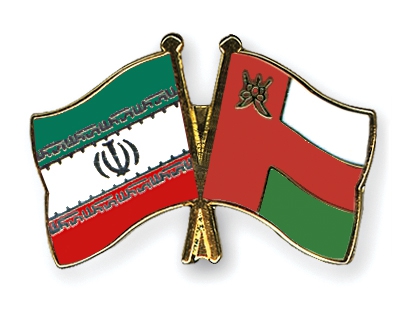
Iran and Oman agreed on exchanging legal and judicial delegations, aiming at developing bilateral relations. The agreement took place following the meeting of the Iranian ambassador to Oman, Mohammad Reza Nouri Shahroodi, and Oman’s head of Supreme Court, Ishaq bin Ahmad Busaidi. Both sides urged on the necessity of using each other’s experience. Iran and Oman are also preparing an agreement for judiciary cooperation, particularly extraditing convicts and prisoners.
IRNA
♦ Helicopter crash, two dead
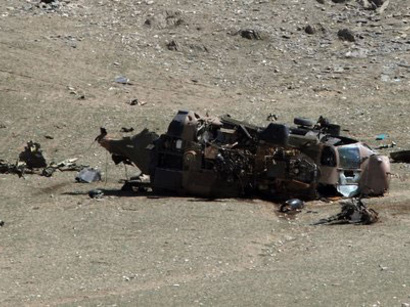
A helicopter of Iranian Offshore Oil Company crashed in the Gulf waters. Two people have been reported dead, and two as missing. Due to adverse weather conditions, search and rescue operation is conducted in difficult conditions.
Asr Iran
♦ Protest against transferring Chaharmahal and Bakhtiari’s water
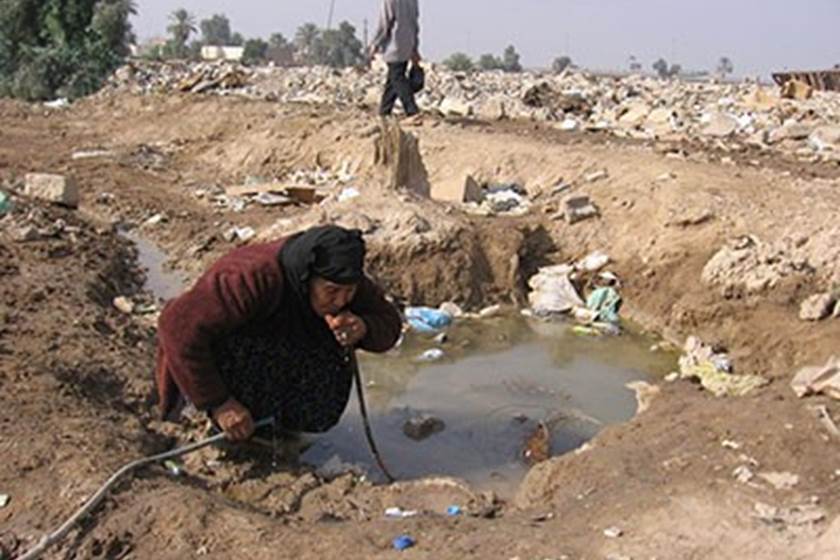
More than 2,000 people from cities of Saman and Shahr-e Kord in Chaharmahal and Bakhtiari Province gathered to protest against transferring the water of this province to Yazd and Isfahan Provinces. Protesters chanted slogans like: “we don’t have industry; how should we earn a living?” and “our province is the fountainhead, but we are always thirsty,” asking the officials to stop this project immediately.
According to a project called “Behesht Abad”, the water of Chaharmahal and Bakhtiari is going to be transferred to Isfahan and Yazd Provinces.
Iran International
♦ Lawmaker: We lost national trust by a wrong decision
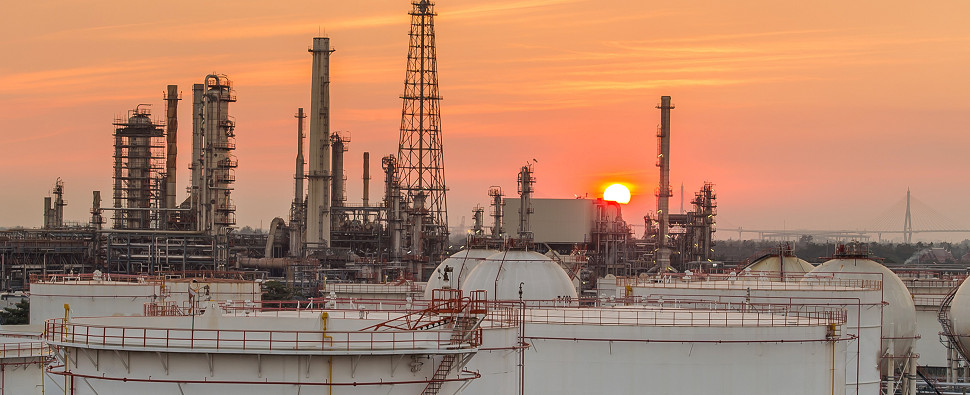
Spokesperson of Energy Commission in the Parliament, Assadollah Gharehkhani, said the government’s decisions in the economic sector have resulted in instability in the rate of foreign currency, saying “it seems to me that there are inconsistency and distrust in the government team.”
As for the future of foreign currency, Gharehkhani said first national trust must be created; people want to invest their money in a place where its value is not decreased, which is why they buy foreign currency and do not go to banks, because they are no sure if the banks can pay back their money with interests. He added, “we have lost national trust by wrong decisions we made.”
ISCA news
♦ Lawmaker: Ahmadinejad helped Khavari escape
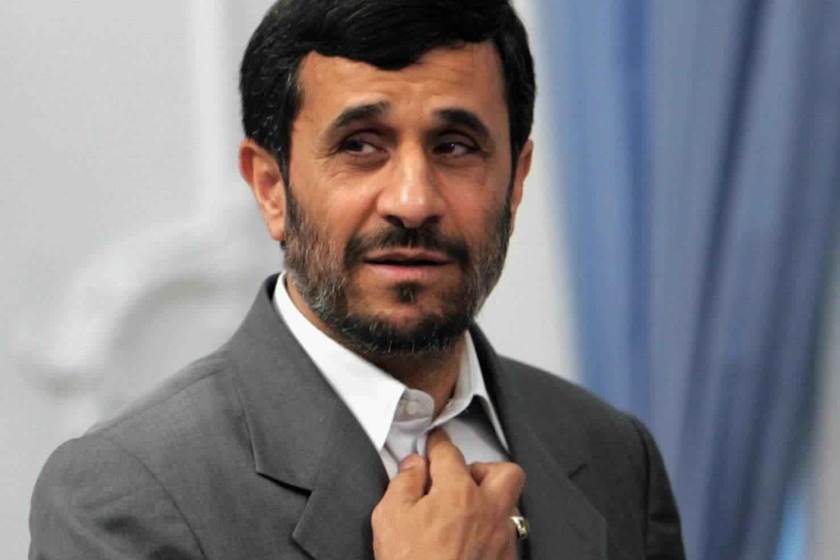
Abulfazl Abutrabi of Velaee Fraction in Iranian parliament said, “Ahmadinejad is the main cause of Khavari escaping [the country].” Mahmoud Reza Khavari is an Iranian former banker who escaped Iran amid allegations of involvement in embezzlement scandal of roughly $2.6 billion. With regard to the case of Saeed Mortazavi, Abutrabi said Mortazavi must do the time for his crime, and judiciary, security and law enforcement forces must follow his arrest up seriously.
Saeed Mortazavi, former Tehran prosecutor, and Press Court Judge has been sentenced to serve a two-year prison term. Recently, Iranian judiciary spokesperson, Gholamhossein Mohseni Ejei said this notorious judge has vanished into thin air before going to jail as “accomplice in the murder.”
Shargh
♦ Iranian leader stops using Telegram account

Khamenei.IR, the Official Website of Iran’s supreme leader, Ali Khamenei, announced that it has stopped using Telegram messenger. The last posting of this channel in Telegram says, “for protecting national interests and de-monopolizing Telegram messenger, Official Website of Iran’s supreme leader stops its activities in this messenger.”
Khabar online
♦ Iranian ambassador: Ground for Iran’s trade activities in Muscat ready
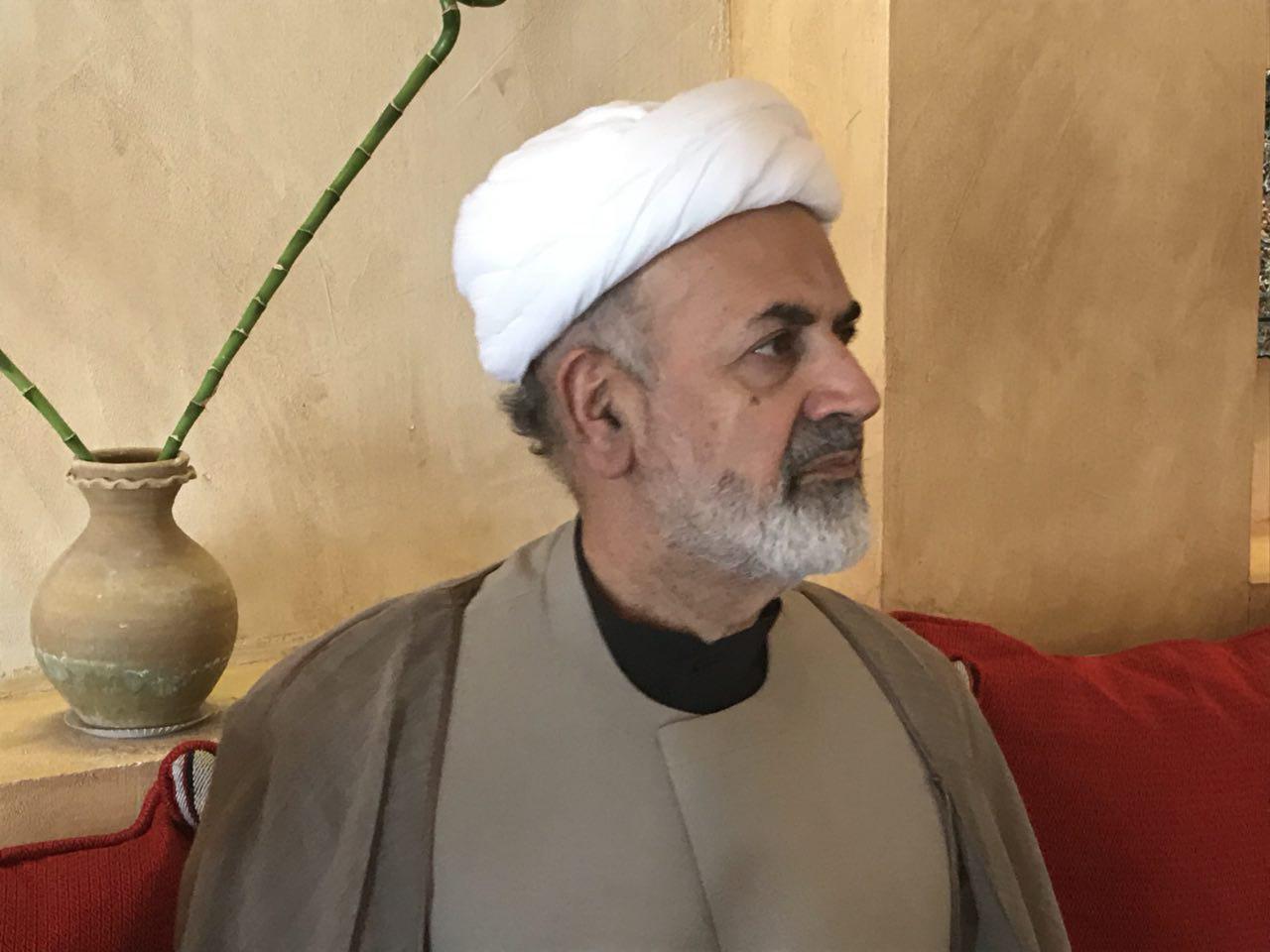
Nouri Shahroodi, Iranian ambassador to Oman, told businessmen of the private sector that proper ground is prepared for their economic activities in Oman. In his meeting with a group of businessmen and economic actors from the private sector who have gone to Muscat, Nouri Shahroodi pointed out to “excellent political relationship of Iran and Oman” and increase in the level of economic relations and amount of trades between the countries.
ISNA
♦ Iranian ambassador: Namibia after using Iranian experience in the energy sector
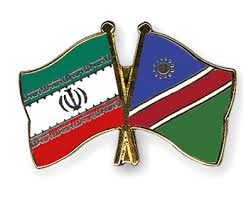
Vahid Karimi, Iranian ambassador to Namibia, said Namibian officials are interested in developing relations with Iran, cooperating in different fields, and using Iran’s capabilities in industry and energy sector. According to Karimi, Namibian FM Netumbo Nandi-Ndaitwah told his Iranian counterpart Mohammad Javad Zarif that his country demands support for industrial progress and welcomes any investments of Iran in agricultural and energy projects, particularly renewable energy. Zarif had emphasized on developing cooperation in energy sector, water, construction, agriculture, new technology, building gas and oil reservoirs, and implementing a plan for manufacturing tractors in Namibia.
IRNA
♦ Zarif meets with Tajikistan’s president
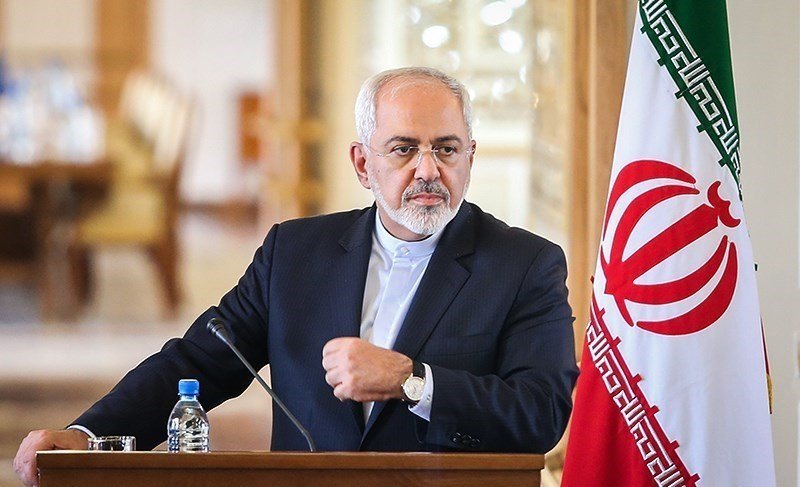
Iranian Foreign Minister Mohammad Javad Zarif who has gone to Tajikistan for ECO meeting met with President Emomali Rahmon to talk about bilateral, regional and international issues. In this meeting, both sides emphasized on joint interests of the two countries, development of relations and cooperation in different political, economic, cultural, energy and technology sectors.
IRNA
♦ Discovery of a large shipment of explosive in eastern borders
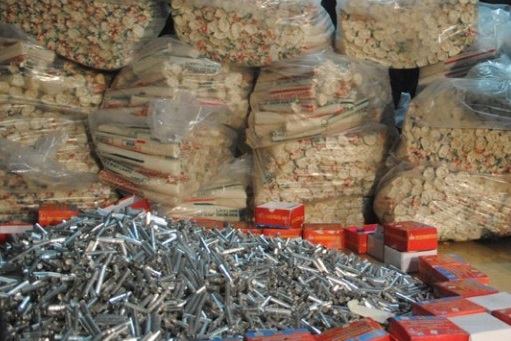
Iranian intelligence ministry forces announced discovery and seizing a large shipment of explosive that was going to enter the country from eastern borders in the cover narcotic drugs. Terrorist groups intended to transfer into Iran 80 kilograms of explosives, 17 explosive traps, 28 colts and 2,100 bullets, and 35 grenades. Also, 580 kilograms of narcotic drugs were discovered.
Jam-e-jam online
Two border guards killed in eastern borders
In clashes with “miscreants” who were trying to enter the country from Mirjaveh border in Sistan and Baluchistan Province, two border guards were killed. No further details have been announced in this regard.
Jam-e-jam
♦ Three new achievements of Army Aviation unveiled
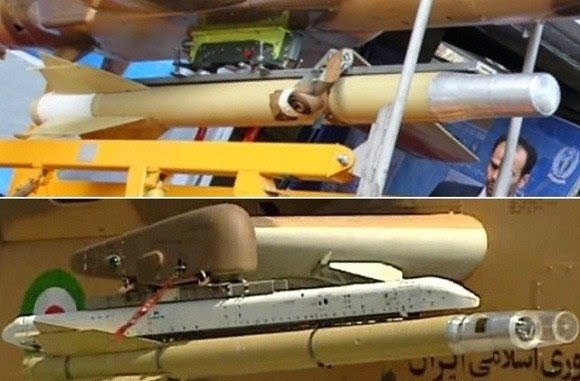
Three local achievements of Army Aviation force were unveiled with the presence of General Ali Jahanshahi, coordinating deputy of Army Ground Forces. The shafagh missile, equipping reconnaissance and logistic helicopters with a missile launcher, and installing night visions cameras on all helicopters were unveiled.
IRNA
♦ Head of judiciary announces support for the government in protecting national currency
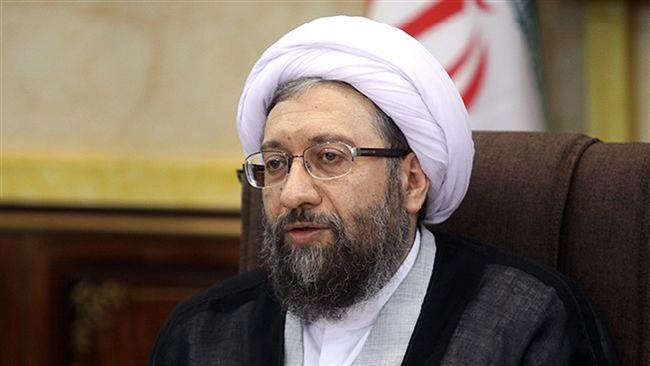
Following the fluctuation in Iran’s foreign currency market, Iranian Chief Justice Sadegh Larijani urged that creating stability in the foreign currency market is one of the significant features of the country’s economy, which is why the judiciary branch will support the government in managing this market. According to Larijani, the market fluctuation has been controlled to some extent, even though the government and the Central Bank were expected to act more quickly.
Shahrvand
♦ Interior minister: Police to confront violators regarding hijab
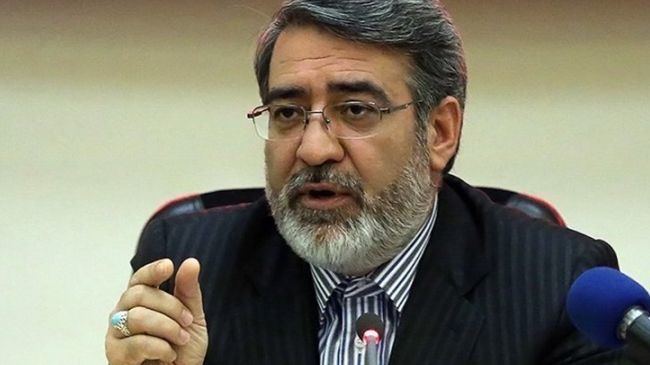
Rahmani Fazli said the law enforcement will confront those who systematically violate the laws with respect to hijab. He added that those who take off their hijabs in their vehicles, create troubles for people and do such things are violating the laws and must be confronted.
Recently, there has been a movement by Iranian women and girls, in which they take off their hijab in public places, thus showing their disagreement with forced hijab.
Ressalat
♦ Health ministry: Longevity increases health costs
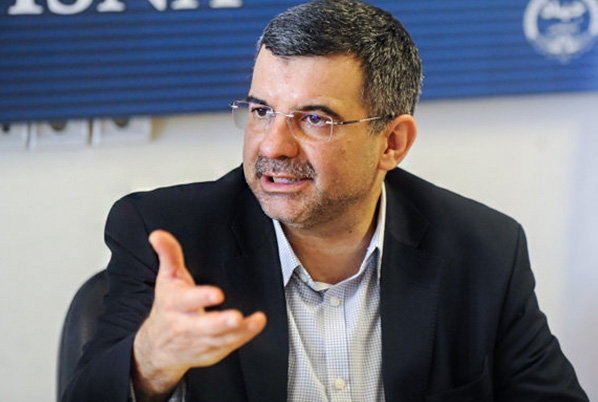
Iraj Harirchi, the spokesperson of the health ministry, said as the population of the country grows older and non-contagious diseases are widespread, it is necessary for donors to take part in the field of health. Harirchi added that numerous factors such as longevity, increasing number of elderly people, widespread non-contagious diseases such heart disease, diabetes, and cancer, increase in people’s expectations, and importing medicine and new technology will be factors in the increased cost of health in future of the country.
Quds online
♦ Night raid against farmers in Isfahan, arresting some
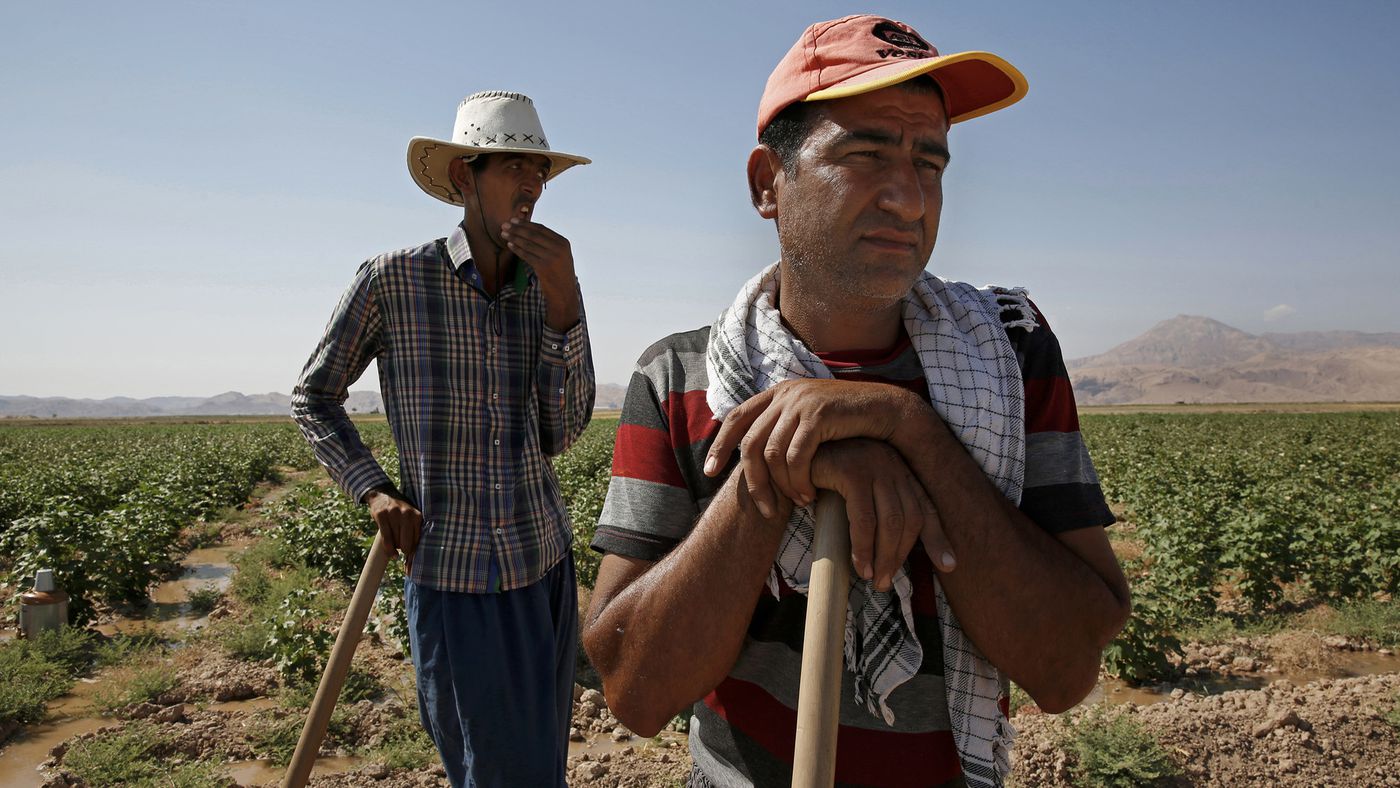
Security forces of intelligence ministry raided houses of farmers in Khorasgan, Isfahan, arresting a number of them. In this brutal raid, ten farmers were arrested. Since early Sunday morning, the regime’s forces have been located in Khorasgan to stop the farmers’ further protests against the shortage of water. Isfahani farmers have been repeatedly protesting in protest against not receiving “right of water from Zayanderud”.
Javanehha
♦ Zolnour: Proposal to build a small nuclear power plant in Iran by China
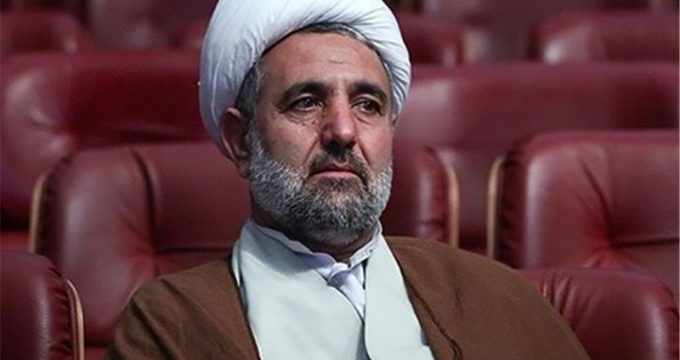
Head of Nuclear Committee in the Parliament, Mojtaba Zolnour, pointed out to nuclear cooperation between Iran and China, saying that there have been talks as to building a small nuclear power plant in Iran by China. Zolnour urged that currently only Russia is cooperating with Iran regarding building a nuclear power plant, and Iran hopes to use China’s capability in creating new nuclear power plants.
Mehr news
♦ Hashemitaba: Liquidity is “mother of all corruptions” in the Iranian economy
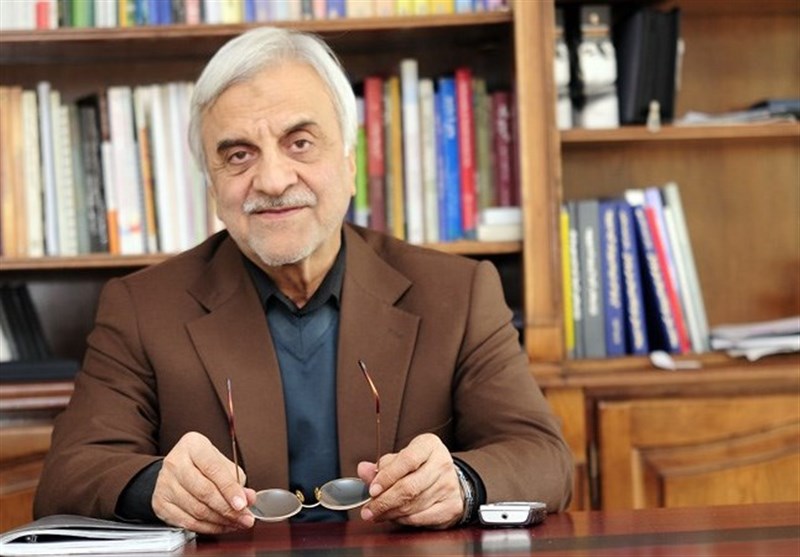
Reformist activist Mostafa Hashemitaba said with regard to changes in the foreign currency market and the government’s approach during the economic crisis that “mother of all our economic corruptions [in Iran] is liquidity and the government must have a measurement system to control it.” He added that liquidity in the country has been increasing as before, and most increases took place during Rouhani’s government. According to Hashemitaba, the crisis in Iran’s foreign currency market is due to the financial capability of certain people and groups that are in possession of liquidity and enter the marker.
ILNA
♦ Ghazipour: Ahmadinejad’s government prepared grounds for corruption
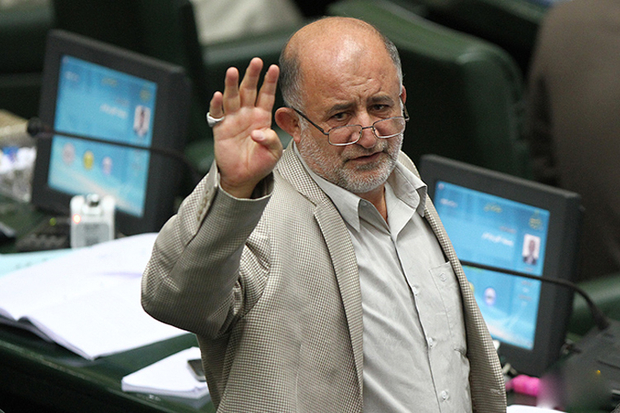
MP Nader Ghazipour said even though the ground for corruption was prepared by Ahmadinejad’s government, his name isn’t mentioned in the performance report of Budget and Planning Commission. In the open session of the Parliament, Ghazipour asserted, “in Ahmadinejad’s government, the oil was given to corrupt people like Babak Zanjani, and it isn’t fair not to mention the name of this person and the then president in the report of Budget and Planning Commission.”
Hamshahri online
♦ Lawmaker demands removing house arrest of Mousavi, Karroubi
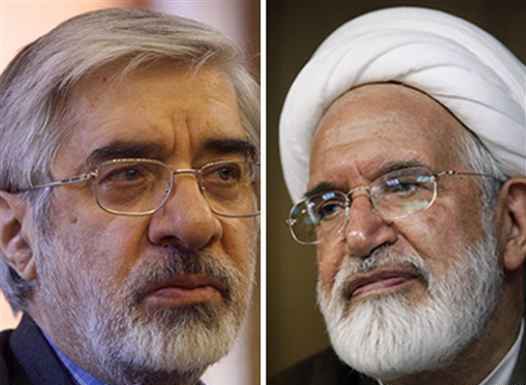
Member of National Security Commission, Mostafa Kavakabian, asked Iranian supreme leader Ali Khamenei to order the removal of house arrest after 7 years. Kavakabian urged that Hassan Rouhani, as the president and head of Supreme National Security Council, must fulfill his election campaign promises in this regard.
Mir-Hossein Mousavi and Mehdi Karroubi, leaders of Iranian Green Movement, along with Mousavi’s wife Zahra Rahnavrd, have been under house arrest since 2011.
Arman Emrouz
♦ 63 lawmakers demand the removal of the governor of Central Bank
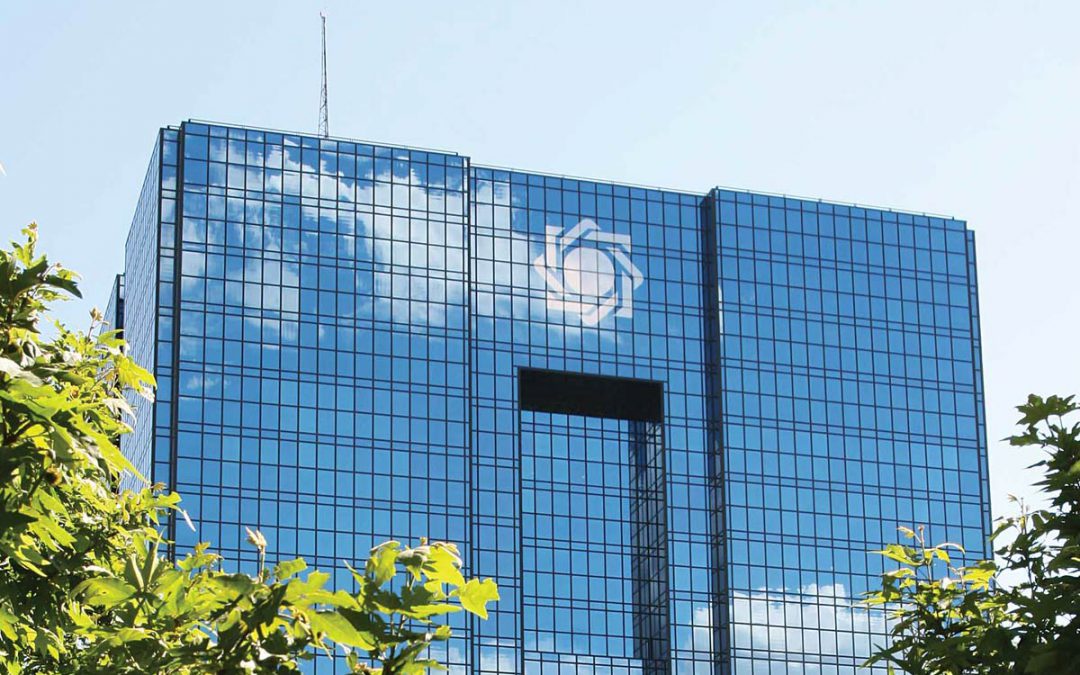
On Sunday, April 16, 63 lawmakers, in a written notice, demanded that Iranian president remove Valiollah Seif, governor of the Central Bank, and other people involved in skyrocketing price of dollars recently. Along with this demand, chairman of the economic commission in the Parliament announced that the main decision regarding the management of foreign currency market is made by the presidency and not by the Central Bank.
Recently, the price of dollar skyrocketed, reaching the unprecedented 6,000 tomans per dollar. During Seif’s speech in the Parliament, who had gone to make explanations about the rise in the price of the dollar, there was tension on the parliament’s floor.
Radio Farda
♦ Putin talks to Rouhani following US air attack against Syria
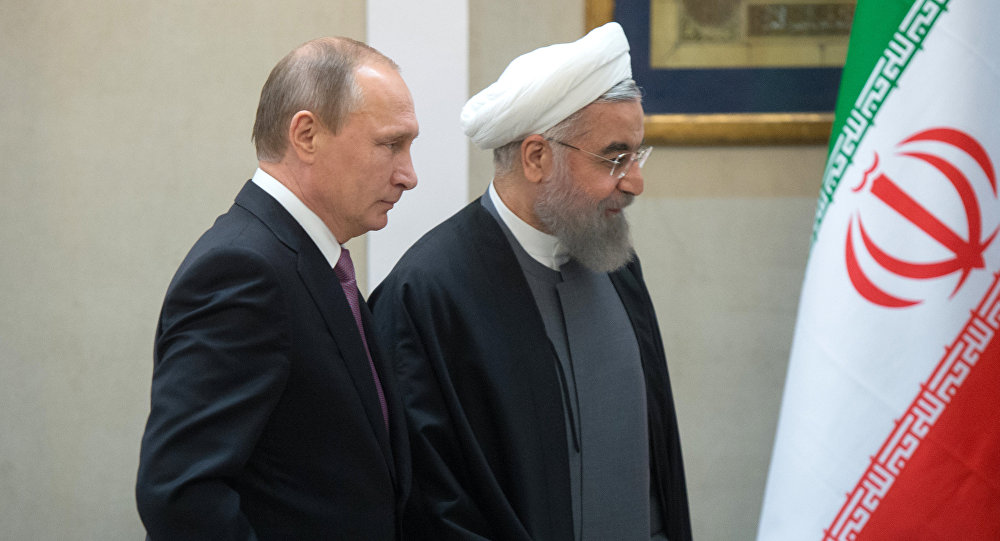
Iranian and Russian presidents talked over the phone regarding international and regional developments, conditions in Syria and bilateral cooperations of Tehran and Russia. Russian President Vladimir Putin called U.S., French and British recent missile attack against Syria on the excuse of chemical weapons an “invasive measure” and for “lifting the spirit of defeated terrorists in this country”. He added that “if invasion and evident violation of international laws take place easily and without any price on behalf of the perpetrators, then we must witness new instabilities in international and regional orders.”
U.S., French and British missile attack was in response to Syrian government’s chemical attack against civilians, in which at least 70 people were reportedly killed. Russia and Iran are close allies of Bashar Assad, the Syrian president.
ISNA
